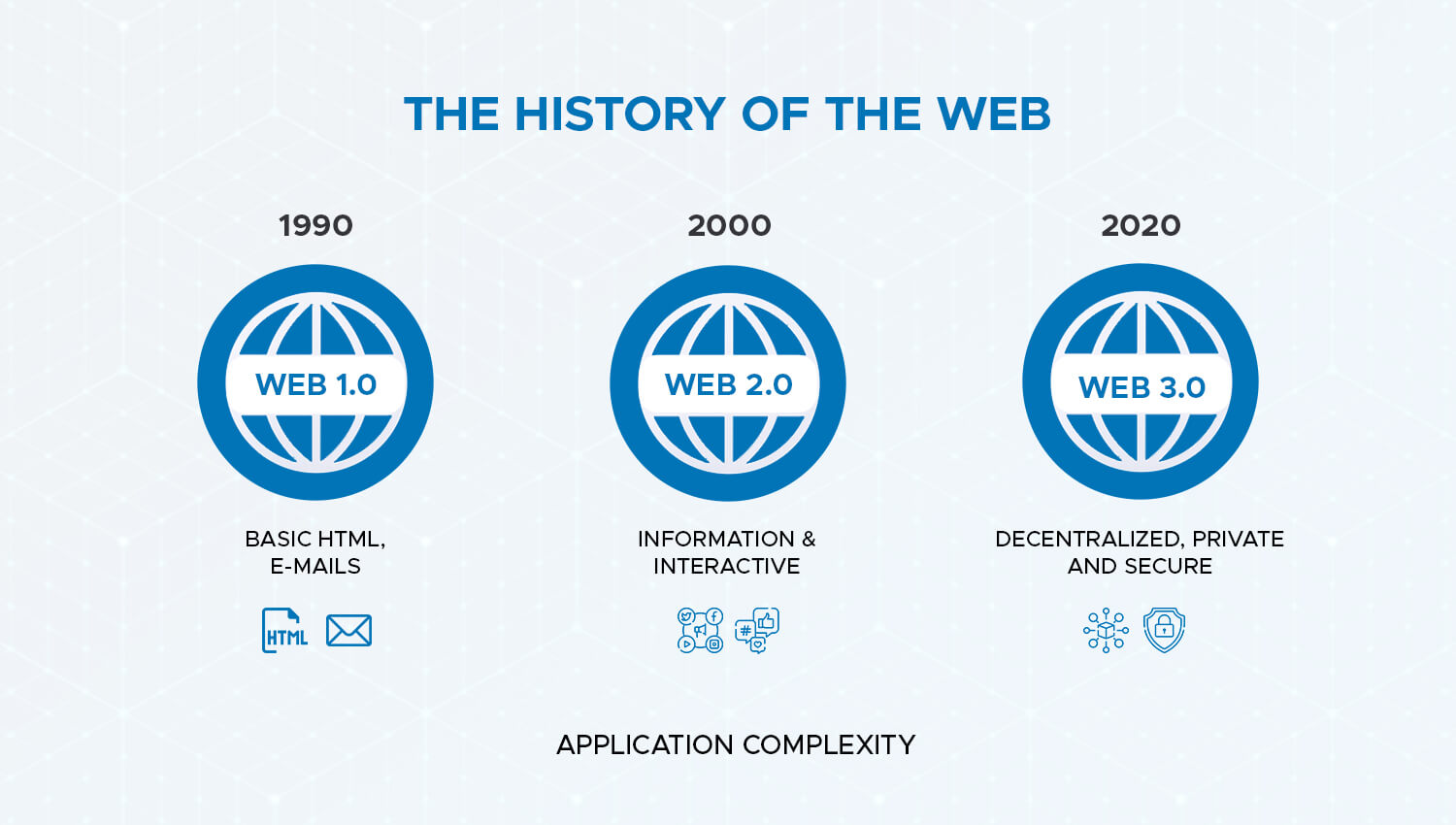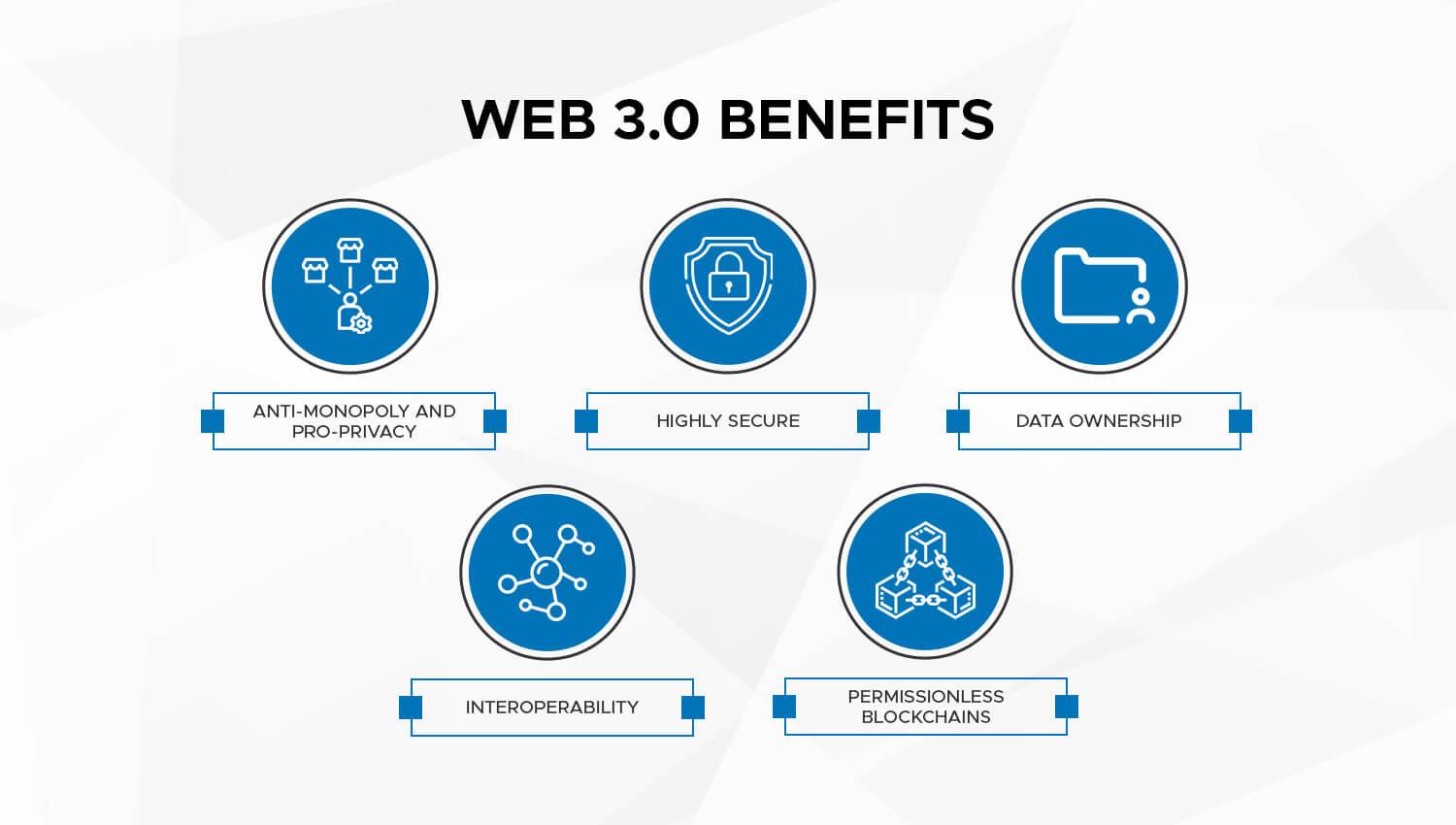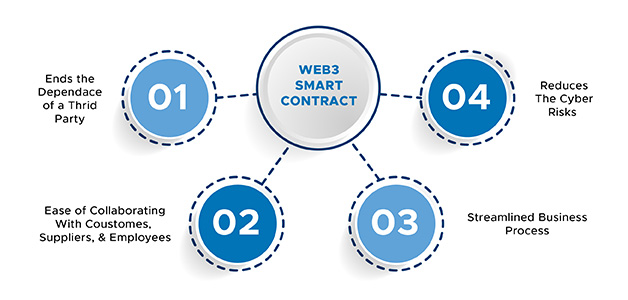-
Web 3.0 aims to eliminate or make the centralized server-client infrastructure used in Web 2.0 obsolete with a decentralized computer network. It is building on the idea of ending the monopoly held by a small group of participants from the previous iteration, Web 2.0. The overarching goal of Web 3.0 is to completely eliminate the large IT businesses that currently serve as intermediaries by taking control away from them. To put it another way, those at the forefront of Web 3.0 aspire to establish a decentralized internet unrestricted by monopolies and conglomerates. As a result, it is fundamentally dependent on blockchain technology. Smart contracts development, the subject of the discussion in this blog, is crucial to the success of the infrastructure of Web 3.0.

What is a Smart Contract
Szabo defined smart contracts as tools that formalize and protect a computer network by fusing a user interface with a protocol. Simply put, smart contracts eliminate the need for a middleman by automating the execution of contracts and ensuring that all parties may examine the results as soon as feasible.
Smart contracts are crucial because they are self-executing agreements that contain buyer and seller agreements, included right in the code. Transactions become traceable, transparent, and irrevocable through smart contracts.
The importance of smart contracts in the blockchain ecosystem cannot be overstated for these reasons; they form the foundation of the Web 3.0 ecosystem and make it possible for users to communicate online while using blockchain as the primary enabler.
Smart contracts enable most user-system interactions on decentralized apps (dApps). They also remain in charge of automating most blockchain protocols. These facts serve as a powerful illustration of its importance.
Smart contracts facilitate the conditions for decentralized transactions without requiring a centralized third party or intermediary for verification purposes, which is one of the main benefits of Web 3.0.

Also, Read | Why Use Solidity for Smart Contracts Development
Variables Pertaining to Smart Contracts
We can divide the fundamental components of a smart contract into three main outlines to comprehend how we can develop one:
- The parties associated with the transaction
- The kinds of assets to be traded
- Terms and conditions of the agreement
The Framework for Smart Contracts: An Overview
A smart contract is a piece of software that functions on a specific virtual machine integrated into the blockchain and encodes business logic.
Typically, developing a smart contract for Web 3.0 involves the following:
- Business teams in collaboration with developers outline requirements for how a smart contract should react to specific events. They include, for instance, payment authorization and shipment receipts.
- It requires performing and testing more complex processes, including determining the value of a derivative financial instrument.
- Employed is an inside expert or audit team that specializes in examining the security of smart contracts.
- Once approved, the smart contract is created on an active blockchain following verification.
- The smart contract is set up to receive additional event updates from an oracle. An oracle connects blockchains to the outside world and allows smart contracts to carry out actions depending on inputs and outputs from the actual world.
- Once the required sequence of events satisfies the requirements specified by the oracle, the smart contract is put into action.
Also, Read | Pre-Built NFT and Smart Contract Solutions for Quick Launch
Smart Contracts' Crucial Role in Web 3.0
Smart contracts do not require brokers or intermediaries to ratify an agreement. It is one of the main advantages it offers. It has proven to be crucial for the most recent iteration of the web. Being autonomous from power brokers promotes the decentralized society that the Web 3.0 initiatives have in mind.
Simply put, smart contracts offer a new method of conducting business online without needing an intermediary. It is because they are precise, economical, and run on a blockchain.
The role smart contracts play in the actualization of Web 3.0 is mostly their interaction with businesses and entrepreneurs. Without the need for a centralized sign-up process managed by a single entity or company, smart contracts handle user authentication. With this configuration, anyone can register for decentralized applications (dApps) utilizing a single-user wallet only accessible to the owner.
Decentralized autonomous organizations (DAOs) can be another use case that a business or a group of businesses can employ. DAOs facilitate governance among users without using a corporate body. They run on a blockchain, powered by smart contracts.
Also, Read | Developing DAO-enabled NFT Marketplace
The introduction of a Web 3.0 economy will not involve central authorities and offer equal opportunities to users worldwide. However, its success will unquestionably depend on the deployment of smart contracts.
Benefits of Web3 Contracts
What benefits do users receive from Web3 contracts? These contracts introduce new methods of conducting business online without the use of intermediaries thanks to their decentralized features (trustlessness). They are also independent, precise, effortless, and economical.
Web3 contracts, however, have broader effects on programmers, users, business owners, and already-existing organizations. Smart contracts enable user authentication without requiring the typical centralized sign-up process, usually controlled by one organization or entity. A Web3 wallet like MetaMask enables decentralized authentication. With this configuration, anyone can register for several dapps using a single-user wallet that is only accessible to the owner. Furthermore, this suggests that smart contracts and their capabilities can come into use to create a completely decentralized economy.
DAOs can also build on Web3 contracts (decentralized autonomous organizations). We can utilize them to manage numerous users without the requirement of a business body.
Web3 contracts are essential if you want to create next-generation websites, dapps, or online companies.

If you are planning to enter the space of web 3.0 and develop smart contract-based solutions but finding it difficult to get started, connect with our smart contract developers to help you out.

Our Offices
INDIA
Emaar Digital Greens, Sector 61,
Gurugram, Haryana
122011.
Welldone Tech Park,
Sector 48, Sohna road,
Gurugram, Haryana
122018.














